So I have been making an app, and everything has been working great. But today I made a new class like usual and for some reason in this class I can't access Public/Global variable from other classes. All the other classes can, but now when ever I try to make a new class I can't. How would this be fixed?
I am using Swift and Xcode 6.
Working Class:
import UIKit
import Foundation
import Parse
import CoreData
var signedIn = true
class ViewController: UIViewController {
New Class:
import UIKit
class NewClass: UIViewController {
override func viewDidLoad() {
super.viewDidLoad()
signedIn = false
}
But on signedIn = false
I get the error:
use of unresolved identifier "signedIn"


